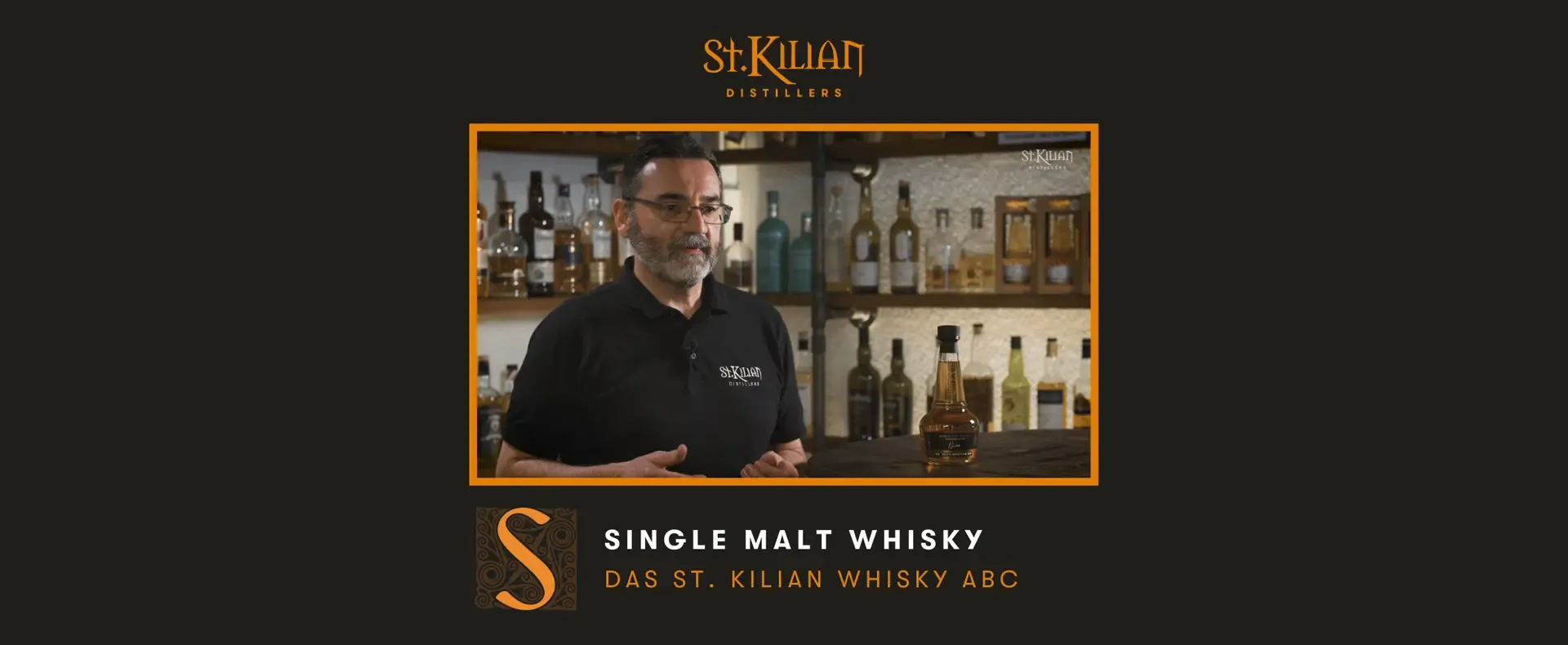S - like single malt whisky

Single Malt Whisky
What is it?
What is a single malt whisky?
In summary, a whisky may only be called a single malt whisky if two conditions are met:
- The whiskey comes from a single distillery.
- The whiskey was made exclusively from malted barley.
That's the short form. However, in order to be able to answer the above question in detail, it is first helpful to take a look at the definition of the term "whisky" as such. Because depending on the country in which whisky is produced, certain regulations apply.
How is whisky defined in Germany?
For Germany as well as other European countries, since April 17, 2019, the EU Spirits Regulation 2019/787 regulates the definition, description, presentation and labeling of spirits as well as the protection of geographical indications. According to this European template, which of course also applies to St. Kilian Distillers, "whisky" is defined as follows:
- Whiskey (or the spelling with an additional "e", i.e. "whiskey", as is common in Ireland) is a spirit obtained exclusively by distilling a mash of malted grain fermented with yeast - with or without whole grains of unmalted grain.
- In addition to the enzymes present in the malted grain, other natural enzymes may be added to the mash for saccharification (this does not apply in Scotland).
- Distillation may only be carried out to a maximum alcohol content of 94.8% by volume (% vol.), so that the distillate has an aroma and flavor derived from the raw materials used.
- The maturation of the final distillate, which may be diluted with water, must take place for at least three years in wooden barrels (not necessarily oak, as required in Scotland, for example) with a capacity of no more than 700 liters.
- Only water and simple sugar caramel (E 150a, to adjust the color) may be added to the whiskey (or whiskey).
- The minimum alcohol content of whiskey (or whiskey) is 40% vol.
- No diluted or undiluted alcohol may be added.
When does whisky qualify as single malt?
Whisky (or whiskey) may only be supplemented by the addition "single malt" if it has been distilled exclusively from malted barley in a single distillery. The term "single" therefore does not refer to a type of grain, a single barrel, a single batch or a single year, but to a single distillery where the whiskey was produced. The addition of "Malt" prescribes the exclusive use of malted barley. Accordingly, a "single malt whisky" is a whisky that was produced from 100 percent malted barley in a single distillery in accordance with the applicable legal requirements of the country of production.
Is a single malt limited in the number of whisky casks?
No. It is irrelevant whether a single malt whisky is composed of different casks, as is often the case with distilleries - including St. Kilian Distillers with regard to the different bottlings of the Signature Editions. As long as it is whisky made exclusively from barley malt and comes from a single distillery, the contents of any number of casks (which meet the respective country-specific regulations) can be blended together for a bottling - and it is still a single malt whisky.
What is a single malt single cask whisky?
If a single malt whisky comes from only one cask, it is a "single malt single cask whisky". This is often the case with our mild as well as smoky Handfilled Whiskies.
When is a whisky called blended malt?
As soon as even one drop of a single malt whisky from another distillery is added to the single malt from this one distillery, this combination may no longer be called a single malt. The prescribed term for this type of whisky is then: blended malt whisky.